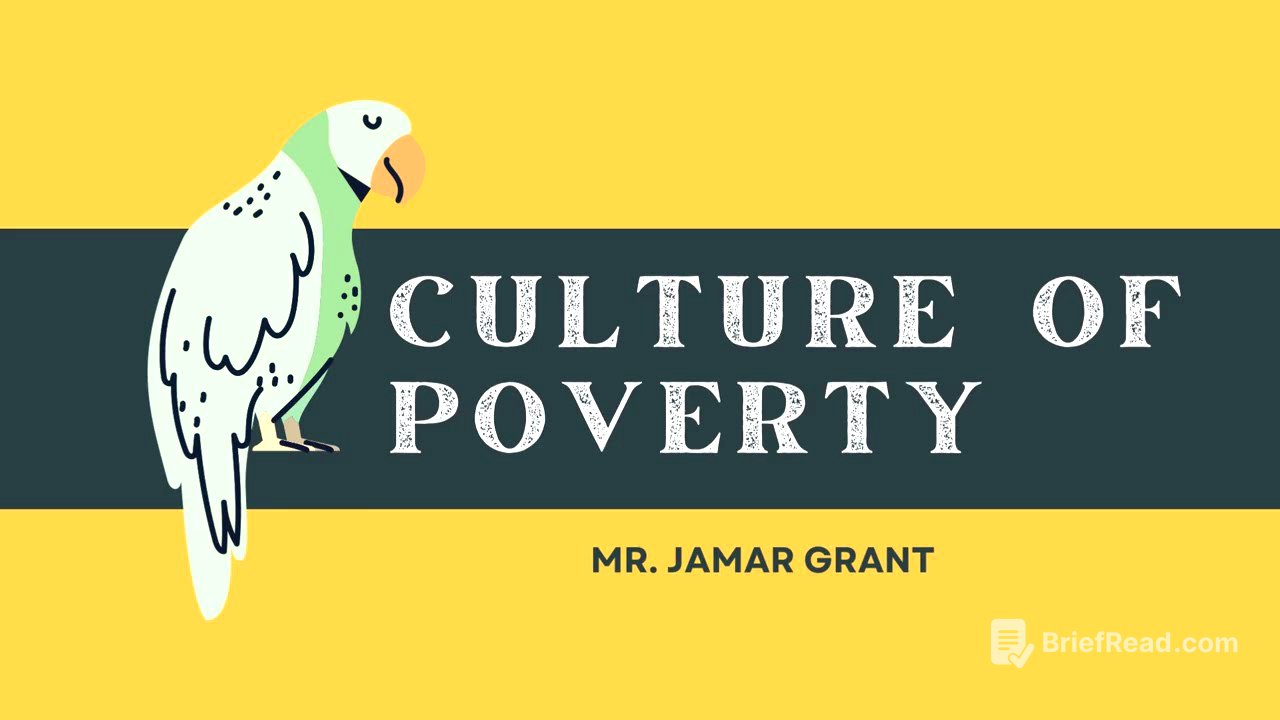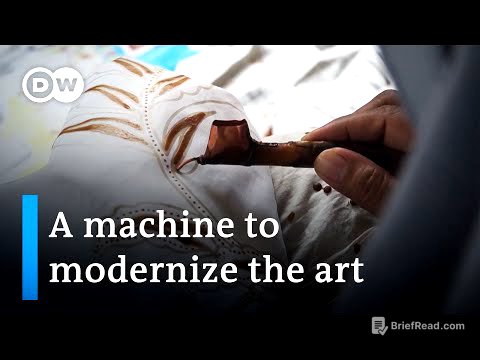TLDR;
This video explains Oscar Lewis's culture of poverty theory, which posits that poverty is perpetuated not just by a lack of money, but also by cultural beliefs, values, and behaviors passed down through generations. The video outlines key features of this culture, including fatalism, present time orientation, and weak family structures. It also addresses criticisms of the theory, such as blaming the victim and ignoring structural factors like unemployment and inequality.
- Poverty is not just about the absence of money but also about cultural and generational systems.
- Key features of the culture of poverty include fatalism, present time orientation, and weak family structures.
- Criticisms of the theory include blaming the victim and ignoring structural factors.
Introduction to the Culture of Poverty Theory [0:01]
The culture of poverty theory suggests that poverty is not solely due to a lack of money but is also caused by cultural and generational systems, value systems, beliefs, and behaviors. Oscar Lewis argues that these cultural factors contribute to a cycle of poverty that is difficult to break. For example, individuals from certain subcultures may prioritize lavish spending over saving and investment, perpetuating their financial struggles. This contrasts with cultures that emphasize saving, investment, and delayed gratification, which are often seen in wealthier communities.
Key Features of the Culture of Poverty [2:48]
One key feature of the culture of poverty is fatalism, the belief that one's circumstances in life cannot change. This belief discourages individuals from seeking opportunities to improve their situation, as they feel trapped in their current state. Another feature is present time orientation, which prioritizes immediate needs over long-term goals. This can lead to spending money on immediate gratification rather than investing in education or savings. Additionally, weak family structures, such as single-parent households, can create further challenges in channeling resources and providing adequate support for children.
Failure of Social Institutions [6:00]
The failure of social institutions, such as schools, to effectively perform their roles can also perpetuate the culture of poverty. When educational systems do not prioritize education and provide opportunities for children to escape poverty, they contribute to a cycle of disadvantage. This failure reinforces the existing cultural beliefs and behaviors that contribute to poverty.
Criticisms of the Culture of Poverty Theory [6:37]
The culture of poverty theory faces several criticisms. One major criticism is that it blames the victim of poverty by focusing on individual behaviors and cultural beliefs without considering the role of society in creating and maintaining poverty. The theory also ignores structural factors such as unemployment, inequality, and lack of access to education and opportunities. Critics argue that these factors play a significant role in perpetuating poverty and should not be overlooked. Additionally, the theory is sometimes used to justify neglect of the poor and reduce government support, which further exacerbates the problem.









